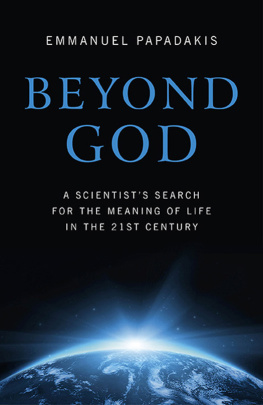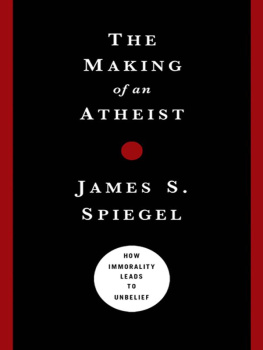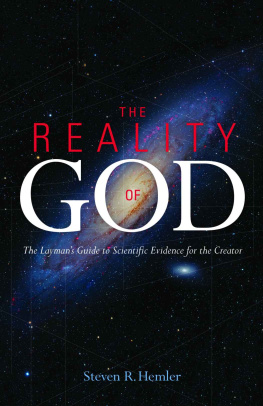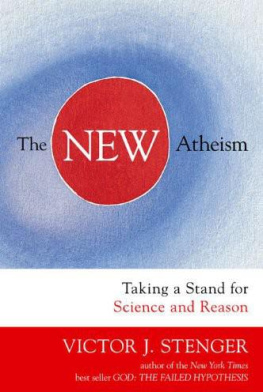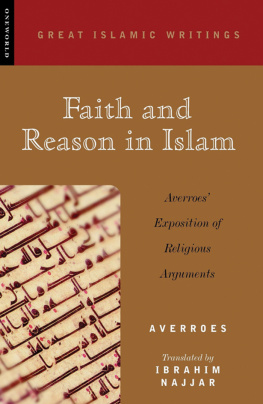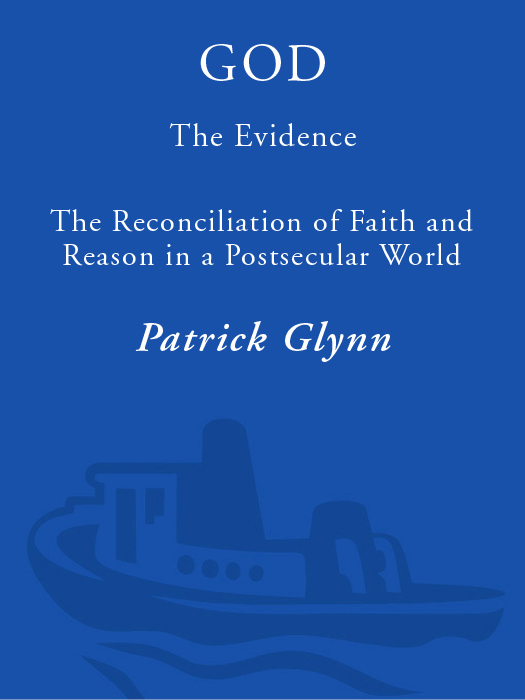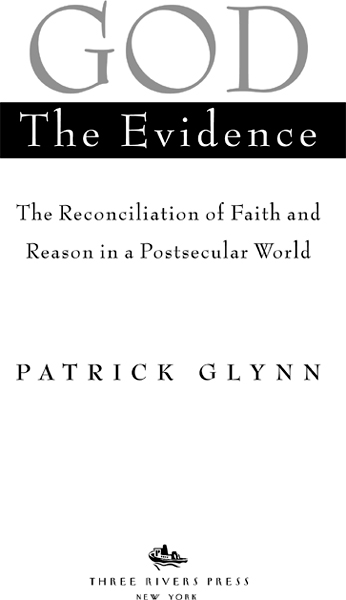This book is at the same time a personal witness of a spiritual odyssey and an informative overview of the difficult relationship between religion and science. It will challenge believers and nonbelievers.
Patrick Glynn has written a thoughtful and provocative book about new scientific evidence for the existence of God and the inability of rationalism to deal with ultimate questions.
Elegantly written and absorbing.
Argues persuasively that science, once a crutch for those who would deny God, in the next century will be a force for moving those with eyes to see and ears to hear in the other direction.
This thoughtful and documented book may help more intellectuals to understand that humans searching for evidence of God is much like a wave on an ocean searching for evidence that the ocean exists.
Patrick Glynn has scouted the terrain of what may be the most exciting cultural event of the twenty-first century. The new dialogue between scientists and religious believers, made possible by both theological advances and the incredibility of fundamentalist naturalism, cant come too soonits only about 400 years overdue. Kudos to Glynn for helping to move the conversation into high gear.
Contents
introduction
The Making and Unmaking of an Atheist
one
two
three
four
five
Acknowledgments

When my wife, Gabriele, and I first met, she would make occasional use of the word spiritual. At the time I had no clear idea what she meant; I thought the spiritual was merely a product of the human imagination. Today I know better. From the beginning, our life together has been an intellectual and spiritual collaboration. That is no less true of this book. Gabriele lived through every step of it, and without her it simply would not have been written. She was a sounding board and a source of ideas, the critical but supportive reader of every draft. We talked through every stage of the argument together. The text is peppered with her editorial suggestions and substantive insights. She always knew when my writing was on and had a very nice way of letting me know when it wasnt. Gabriele was also constantly supportive in other waysuncomplaining when I was forced to spend the better part of a Saturday and Sunday in front of the computer, or when my mood became glum and preoccupied because a particular section was giving me trouble. No author could ask for a more generous, loving, or intelligent partner. I love her. I thank God every day for sending her to me.
Steven Martin of Prima Publishing wrote to me after reading a short piece I wrote on cosmology and the God question for National Review. His belief in the possibility of this book helped to make it a reality. The Prima editorial team, including senior editor Betsy Towner Levine, was the picture of competence and a pleasure to work with from start to finish.
George Weigel, then president and now senior fellow at the Ethics and Public Policy Center, provided through his organization the 501C-3 umbrella for a small grant that enabled me to bridge into the project after leaving the American Enterprise Institute. Both George and his successor as president of the center, Elliot Abrams, were supportive of the project proposal, and I am appreciative.
When my writing on politics and public policy began to take a spiritual turn a couple of years ago, Amitai Etzioni was one of the first people in Washington to notice the change and one of the few to respond wholly positively. In February 1997, Amitai raised the possibility of my joining his Communitarian research center at George Washington University. His friend and supporter Norton Garfinkle, now chairman of the George Washington University Institute for Communitarian Policy Studies, provided the wherewithal to create the position of associate director of the institute and permitted me to work at the job part-time until God: The Evidence was complete. It was a key to finishing the book, and I am grateful to both of them.
Finally, in my stepson, Kai Hills, I have had all the advantages of a son, with none of the usual work that goes into fatherhood. He was kind enough to read the introduction to the book in manuscript form andmuch to my delightsaid he liked it. I hope other readers feel the same.
introduction
The Making and Unmaking of an Atheist
T his book had its origins in a spiritual awakeningor, to put the situation somewhat less glamorously, after many years of being a philosophical atheist or agnostic, I finally realized that there was in fact a God. A God, a soul, a survival after death. This, of course, would not be news to most people. Depending on how you interpret opinion polls, upwards of 70 percent of Americans seem to share such beliefs. But for me, as I think would be true for many others like me, and possibly even for some of you, it was news. Big news.
For despite the fact that the overwhelming majority of Americans are believers, our intellectual culture has been dominated by skepticism. When I did undergraduate and graduate work at Harvard in the 1970s, for example, it was taken for granted that traditional religious beliefs were a thing of the past, invalidated by science, incompatible with a modern outlook. There were believers among the professors, of course. But the culture was agnostic. There was a certain tendency, which I came to share, to view religious belief and practice as manifestations of intellectual inconsistency, emotional weakness, or a lack of cultural sophistication.
This is an old complaint among religiously minded people, and I dont wish to add my voice to those of the complainers. I would argue insteadand I try to show in this bookthat the situation is in the process of changing. The day, I believe, is soon coming when skepticism, unbelief, is going to be the minority position, not just among the populace at large, but even among intellectuals. What happened to methe rediscovery of the spiritualis happening to others and is on the verge of happening to our culture as a whole.
The reason lies in a series of dramatic new developments in science, medicine, and other fields that have radically transformed the old existence-of-God debate. Essentially, over the past twenty years, a significant body of evidence has emerged, shattering the foundations of the long-dominant modern secular worldview. These new discoveries, it seems to me, add up to a powerfulindeed, all-but-incontestablecase for what once was considered a completely debatable matter of faith: the existence of soul, afterlife, and God.


